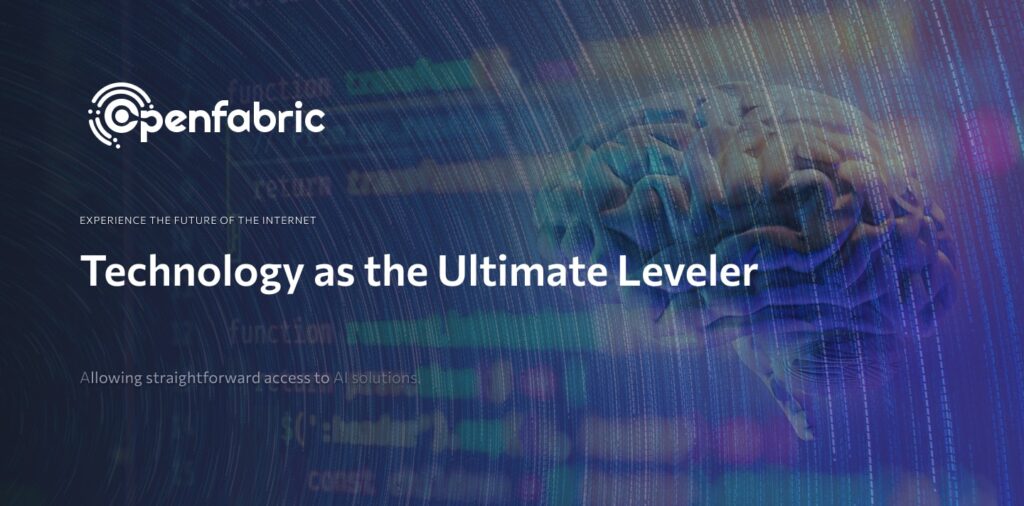
April 11, 2022 4 minutes read
Technology as the Ultimate Leveler

Welcome to the third and final installment of our series on ‘Wealth Creation in the Age of AI’.
Part 1 of our series deals with how startups have come to be known as the ultimate medium for wealth creation. We also touched upon the interrelated concepts of innovation and idea creation in that blog post.
After this discussion, we moved on to understanding the vital difference between money and wealth in the second part of the series. On our final post of the series carries the discussion forward and we see how technologies such as artificial intelligence have proven to be a great leveler.
Technology is leverage
Startups are a wonderful creation. In part 1 we saw how startups have become the ultimate mode of wealth creation. At the core of startups lies the power of technology. Startups essentially offer two different things; measurement and leverage. By measurement, we mean the ability to measure how much value is being produced by an individual’s work. By working harder, a team member is able to generate more profitability for himself and the startup. Everyone has an incentive to put in their best. The small size of a startup makes this a possibility.
The other thing that startups have going for themselves is the leverage that they hold due to technology. By inventing new technologies, startups can make money. The simplest definition of technology is ‘a way of doing things’ or a ‘technique’. Startups figure out a new way to do a certain thing, and they attain more value as people start to adopt their solution. Thus, by solving a technical problem that matters to a lot of people, a startup achieves leverage. Furthermore, this process generates wealth for the adopters, who gain access to cutting-edge solutions to their problems.
Barriers to entry
Traditionally, startups try to figure out the most difficult problems. This has an extra advantage, namely that the competition can not quickly copy what the startup is doing. Going at a problem that no one deems solvable provides a certain barrier to entry that prevents large corporations with unlimited resources to bring out a solution to the market in due time.
While this strategy may have some advantages, it is not necessarily the ideal solution for startups in today’s age of AI and blockchain. We talk more about this below.
How to judge a good technology
One of the best ways to judge the quality of the technology that you produce is by the number of its users. This is a widely accepted standard in the industry and many VCs use it as their primary metric. Users of today are very picky with what they use and will only stick to a product if it provides them with value. Startups must be treated like an optimization problem in which we measure performance via the number of users.
A critical mistake made by some startups is that they just move towards solving intriguing technical problems instead of delivering what their users are asking for. A golden rule for startups is to solve that problem that users want to be solved. This results in good technology. If we recall our discussion on money vs wealth, we established that wealth is what people really want. An ideal startup would be one that provides its users with some form of wealth. In doing so it also generates substantial wealth for itself.
Artificial Intelligence is leveling the playing field
As you might have guessed, artificial intelligence has proven to be a blessing for startups. With the help of AI tools, startups can get an early version of their product out there for users to test. This Minimum Viable Product (MVP), allows startups to better gauge the market. This also helps prevent wasting time on premature optimizations. Also ensures that time is only allocated towards performing the necessary changes based on critical user feedback.
AI tools enable startups to understand their audience in a far better way than was possible before. This results in a highly specialized product that strays away from the one-size-fits-all approach by catering to everyone. The democratization of AI is a reality and will only be accelerated soon as more people access it. Players like Openfabric are making strides in this direction. Think of it this way, a decade ago, having a chauffeured service was considered a luxury. With the rise of ride-hailing applications now it is within the reach of everyone with a smartphone and is also extremely affordable. Openfabric envisions a similar future of artificial intelligence.
AI for everyone through Openfabric
Openfabric intends to achieve this by completely removing the barrier to entry for artificial intelligence. Now anyone can utilize the powerful AI tools and produce something that benefits a large number of people. A while back, wealth creation seemed like an unattainable objective for some but due to the ease by which Openfabric enables you to create AI solutions, you can provide your community with immense value and create wealth in the process.
The team at Openfabric is also addressing major challenges regarding interoperability, smart economy, and security. With the aim to create an innovation engine that will secure the intellectual property of developers and stimulate fair competition between all participants within the ecosystem, Openfabric has really brought the best of blockchain and AI to all those who seek its powers.
To learn more about the latest developments at Openfabric, stay tuned to our Twitter.

